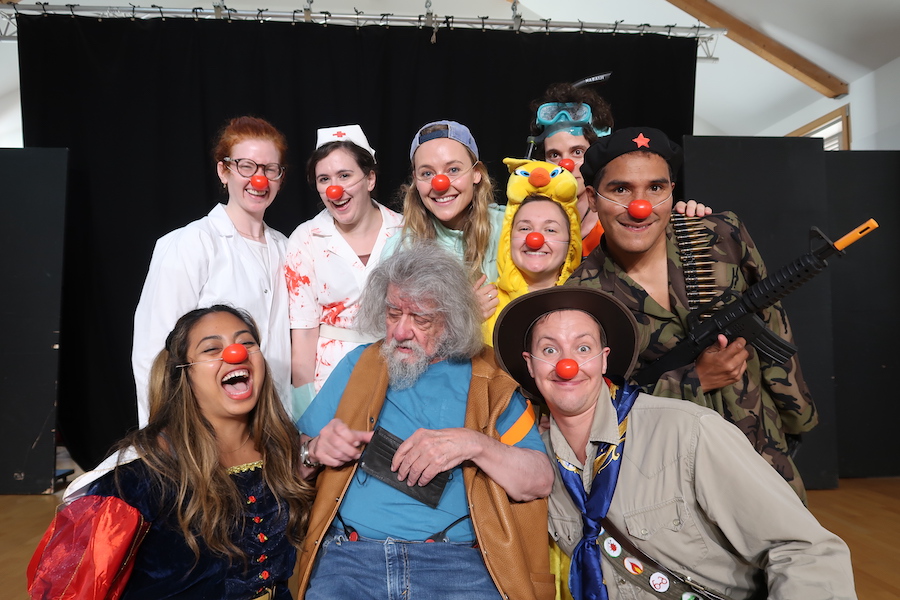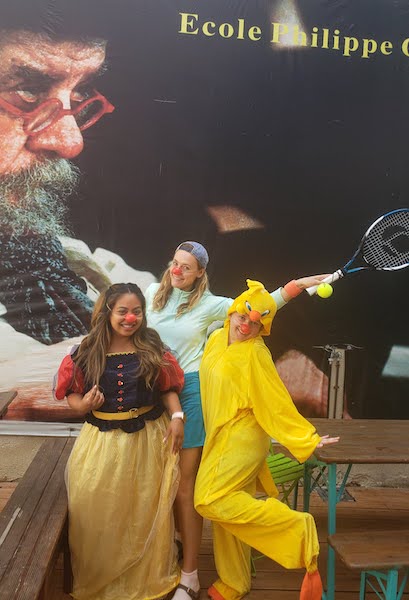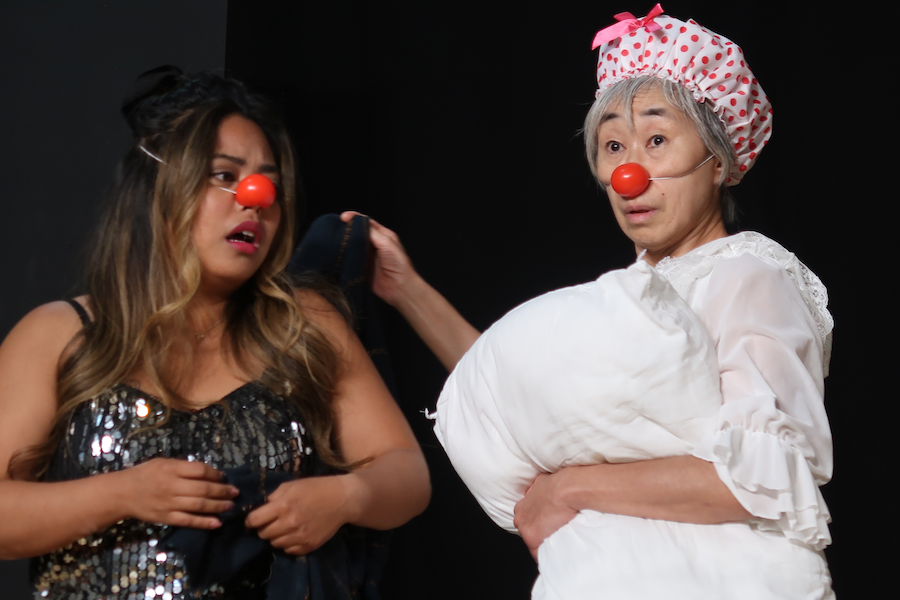I began my clown journey knowing absolutely nothing. I am pleased to say that having nothing in your head remains one of the key successes to being a clown. Of course, when I started, I had no idea how useful not knowing anything was. In fact, it rocked me to my core for not being “good enough” when I initially started.
I came to clown school at Ecole Philippe Gaulier with a wealth of experience as a performer and lover of the arts. Many years of my youth consisted of training in areas of theatrical acting, musical theatre, show choirs, dance, and acting for film and television work. One area I did lack in was the incredible theatre sport that is improvisation. I was told by one of my former acting instructors that clown was “improv on fire”. I knew that if I were to venture into clown work that my improvisation skills needed to be sharpened.
I took a couple of local improv classes, so I understood the basic requirements of improvisation, but it was never my go-to form of performance. I am definitely an over-thinker to a fault, and love to make plans – but being a teacher as my day job allowed me to improvise (or as others put it be “flexible”) in order to maintain engagement. In a way, this kind of improvising is useful to a clown – as its main goal is to “win over” the audience.
I will say that my journey in France and introduction to clown was a rough one, but I have definitely learned a ton along the way. The following list is a generalized summary of what I have gathered in the world of clown, and how it has re-informed my understanding of performance, connection and humanity.

- You’re not as clever as you think you are. If you come in with an idea you think is brilliant to your own standards and come out to the stage with confidence that you are brilliant, your idea will most likely make you flop*. Instead, listen to your gut and let in others into your initial spark of an idea, and adjust accordingly. You will be amazed with what you can accomplish when you show up as you are, and just embrace where you are emotionally and physically in the moment.
- Embrace failure. It’s okay flop*, when you try something for the first time. It’s the earnest effort that counts. You get bonus points for trying again with that same earnest effort. Embrace the flop – most times, your audience responds more genuinely to your reaction to your failure in a kind a way, and you end up winning over the audience anyway.
- Embrace change. When you can feel the flop* arising from the audience, change what you are doing immediately – or embrace and accept the flop.
- Enjoy the glow when you’re in the show. When something is going well on stage, and you are getting laughs, DO NOT change what you are doing. Keep doing the same thing (saying the same things or doing similar gestures), because apparently what you are doing on stage is working and you’re winning over the audience!
- Eye contact and connection are key. Don’t look up into the sky, or the ground, or behind your audience. Do not be afraid to make eye contact and make connections with the audience. It’s okay to engage even in a short conversation with them.
- Do your very best. If a clown does not care, the audience does not care. Care about your task, regardless how silly or tedious or challenging it may be. When the clown tries their best, the audience will root for your success and love you regardless if you are successful or not. A clown’s job is to “save the show” — do your best doing so!
- Do not hold a grudge. Throwing blame or shame will blow up in your face. Do not get angry at the audience for not responding positively to your performance because it will be very tough to win them back. Instead use your flop* as an opportunity to mentally recoup, listen to what the audience is telling you through their body language and adjust what you are doing.
- Start in a place of joy and curiosity. When a clown begins a performance, they must be curious about the audience, task or activity – and they should have fun doing so! This energy is contagious when spread genuinely, and the audience will be enticed and curious to what the clown will do next. Be warry of those who start off grumpy – this energy is also contagious.
- When all else fails, follow your heart. When a clown is floundering, and if reverting to previous performance tactics are not working and a flop is at about to arise, think about what makes your heart happy and follow that guttural instinct. Sing, dance, talk about something you adore – whatever it is, allow it to bring the sparkle in your eye to let the audience in on the love you experience. When you feel it, the audience feels it too.
- Exit when you’re prompted to. When we’re killing a performance, we wish it goes on forever. We want the audience to feel like putty in our hands and will want to earn that feeling again and again on stage. Unfortunately, there will be a time where that moment ends. It’s not necessarily a flop* or sign of defeat, but all great things come to a natural end, and we too, clown and humans alike, should embrace that finish line and know when it is time to move on.
These lessons learned in clown have not only allowed me to learn how to open up on stage, but have allowed me to open up in my personal life. I feel like at our very core, all of us humans are clowns. We live our lives seeking love and validation whether we like it or not. We respond graciously to positive reinforcement and constantly adjust ourselves in response to others. We listen, receive and adapt constantly, doing our very best to survive and to save the “show”. The “show” which symbolizes our existence among those we cohabitate. Like a clown, we yearn to connect, love and be accepted for who we are, flops and all.
*flop: (of a performer or show) be completely unsuccessful; fail totally


